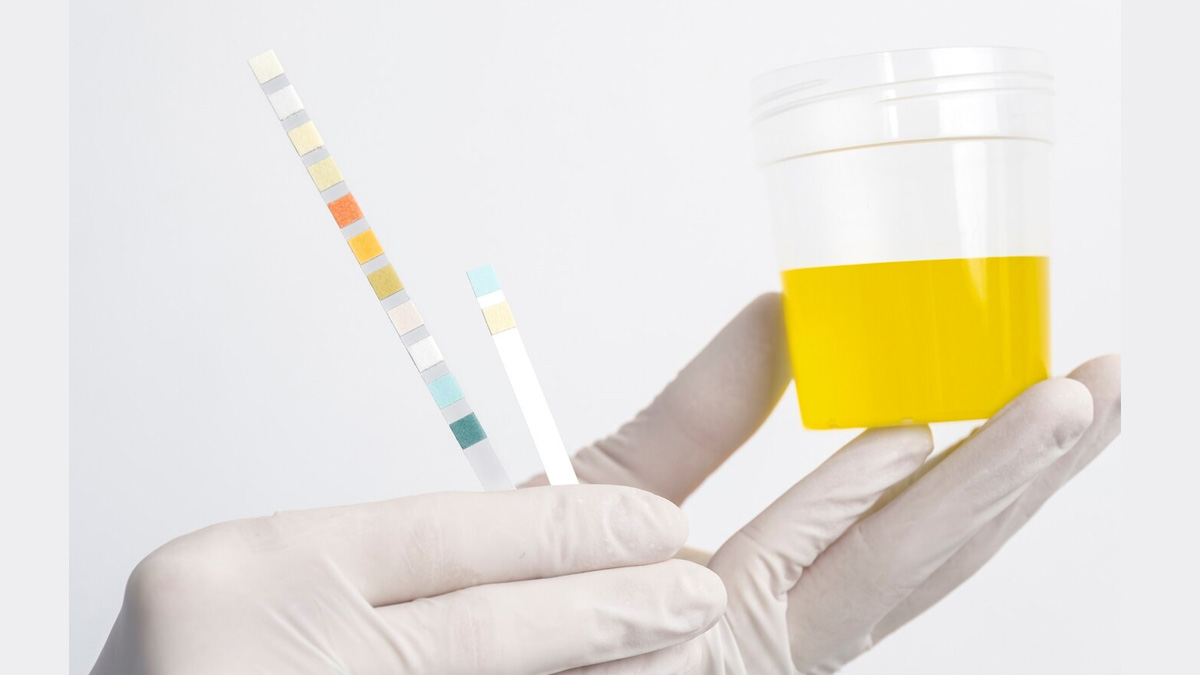
Insulin is a hormone that helps the body's cells absorb blood sugar to make energy. Diabetes occurs when the body either cannot produce enough insulin or is unable to effectively utilise the insulin produced by the pancreas. A common indicator is high blood glucose, which can be detected through various tests.
Table of Content:-
While you may have heard of a fasting blood sugar test to monitor blood sugar levels, many people wonder why some people have to undergo a urine test during the diabetes examination. If you're one of them, here's what an expert has to say.
Also Read: Warning Signs Of Diabetes That Occur In The Night
The Role Of Urine Test In Monitoring Diabetes

Speaking with the OnlyMYHealth team, Dr Rachna Mazumder, Consultant-Endocrinology, Fortis Hospital, Anandapur, says that a urine test is part of a diabetes checkup because it helps to monitor the levels of glucose and ketone in diabetic patients.
Glucose is a simple sugar found in carbohydrates and absorbed into the bloodstream for energy. Ketones are a type of chemical made by the liver from fat when glucose is unavailable. This means that ketones are produced when the body can't use glucose for energy.
When blood sugar levels are very high, the kidneys can eliminate excess glucose through urine, which is why urine tests can detect the presence of glucose in the pee. However, Dr Mazumdar notes that it may not be the most reliable way to monitor glucose levels in diabetic patients.
What A Urine Test Doesn’t Do?

While urine tests may be a part of your diabetes checkup or may be used to detect high blood sugar levels in the body, they are not the right tool to diagnose diabetes.
Dr Mazumdar says, “Urine tests are not used to diagnose diabetes, as blood tests are the most accurate.”
“A routine checkup, however, always includes a test for the urine to assess kidney function,” she adds.
Also Read: How Hydrated Are You? The Colour Of Your Urine Can Tell
The Best Way To Diagnose Diabetes

The best way to diagnose diabetes and monitor blood sugar levels is through a blood test.
There are different types of blood tests that help the doctors diagnose, monitor, and identify the type of diabetes the patient has. These include:
- Random Blood Sugar Tests are often performed in camps or clinics but are not standardised. However, they are used to screen for diabetes.
- Glucose Tolerance Tests have standardised values and are used for the diagnosis and monitoring of diabetes.
- Anti-GAD, anti-IA-2 antibodies, and C peptides (preferably postprandial) help to differentiate the type of diabetes.
Conclusion
Diabetes is a chronic condition that either develops early in life or is linked to lifestyle factors like an unhealthy diet, a lack of exercise, and obesity. In both cases, regular monitoring is of utmost importance. A blood test is the best way to understand your condition and to check for blood sugar levels in the body. While a doctor may recommend getting a urine test, it is not the most accurate tool to diagnose or monitor diabetes. Speak to a healthcare professional to know your best options.
Also watch this video
How we keep this article up to date:
We work with experts and keep a close eye on the latest in health and wellness. Whenever there is a new research or helpful information, we update our articles with accurate and useful advice.
Current Version